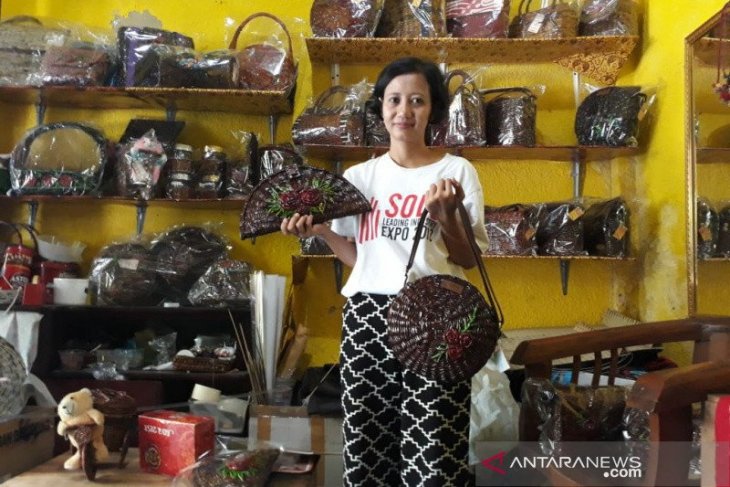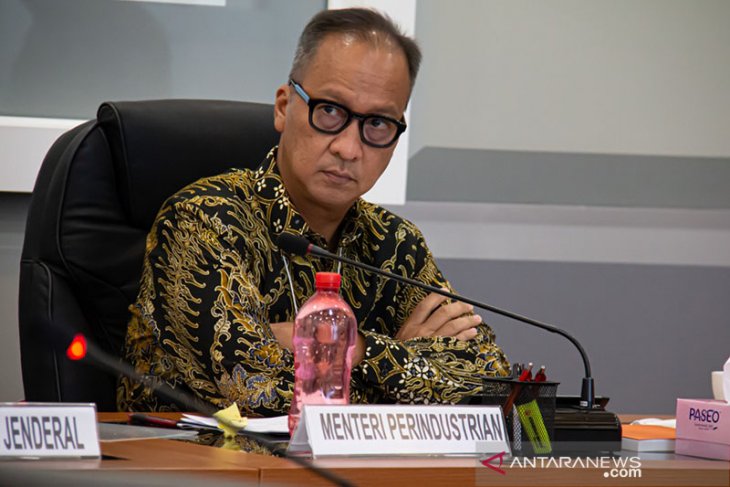Live Streaming
Program Highlight
Company Profile

Nouvarah Ahdiba
The government is committed to strengthening social protection and food security, President Joko Widodo stressed while presenting the draft state budget at the DPR-RI Plenary Session for 2020-2021 here on Friday.
“For food security in 2021, around Rp104.2 trillion has been budgeted which will be directed at boosting food commodity production,” President Joko Widodo said.
The President said efforts to encourage food commodity production were carried out by building infrastructure and utilization technology.
In addition, the efforts included the revitalization of the national food system by strengthening farmer and fisherman corporations, food distribution, and development of scale food areas (food estate) to increase food productivity.
The government has also committed to improving the welfare of farmers and fishermen by targeting the Farmer Exchange Rate (NTP) and Fisherman Exchange Rate (NTN) of 102-104 in 2021.
As for the commitment to strengthen social protection, the social protection budget in 2021 of Rp419.3 trillion will be directed at accelerating social recovery and supporting the gradual reform of the social protection system.
Social protection measures are being carried out through the provision of assistance to the community through the family hope program, basic food cards, cash assistance, and pre-employment cards; encouragement of a comprehensive social protection reform program based on the life cycle; and, anticipating the aging population.
They also include improving the Integrated Social Welfare Data (DTKS) and improving the mechanism for channeling social protection programs, as well as strengthening monitoring and evaluation.
“Reform of the social protection system is very important in supporting efforts to eradicate extreme poverty in 2024,” the President explained. (ANTARA)
August

The Ministry of Cooperatives and Small Medium Enterprises (SMEs) has urged MSME players to adapt their businesses and focus on product innovation in order to survive the crisis created by the COVID-19 pandemic.
"One of the main things that must be done by MSMEs to survive in this period is (focus on) the necessity for adapting (their) business and exploring product innovation, so that they can adapt to market demand," Special Staff to the Minister of Cooperatives and SMEs, Fiki Satari, said in an online discussion in Jakarta on Wednesday.
In addition, Fiki said that government support for MSMEs in this difficult time is enmeshed with efforts to accelerate the digital transformation of MSMEs so that they can survive and carry out business activities, and also compete in the market.
The micro, small and medium enterprises (MSME) sector has been the most affected by the COVID-19 pandemic. Many MSMEs have lost their source of income and have been unable to pay installments. Many have been forced to close due to reduced income in wake of the pandemic.
During the online discussion on Wednesday, CEO of Midtrans, Erwin Tanudjaja, explained that the use of digital platforms has now become a necessity for MSMEs for selling products.
“We are fully aware, in this current situation, facilitating the transition and adaptation of hundreds of MSMEs in Indonesia to the online realm through digitalization efforts has become a priority,” Erwin said.
Meanwhile, CEO and co-founder, Moka Haryanto Tanjo, said that digital transformation will help MSMEs to survive in this difficult time.
"Not only in terms of online sales, digital-based operational management solutions are also important to be implemented in business," said Haryanto.
By utilizing a digital system in business operations, it is hoped that MSME players will become more responsive in analyzing sales and making important business decisions, he added. (ANTARA)
July

The Ministry of Industry (Kemenperin) is preparing a road map to reach the target for 35-percent import substitution this year to reduce import dependency on capital goods and raw materials.
The move is also aimed at completing the industrial structure in the country.
"We are in the process of formulating a road map for the import substitution program. The output and outcome will be import substitution, which we are striving to reach 35 percent by 2022," Minister of Industry, Agus Gumiwang Kartasasmita, said in a statement received in Jakarta on Wednesday.
Under the program, measures are being taken to implement import substitution in industries that recorded large import values in 2019.
They include machinery, chemical, metal, electronics, food, electrical equipment, textiles, motor vehicles, metal goods, and rubber and rubber goods industries.
“This (import substitution) is what we will handle through various policies. We believe this effort will encourage the deepening of the industrial structure, increase investment, and promote the absorption of new workers," the minister said.
To achieve the import substitution target of 35 percent in 2020, the Industry Ministry has taken steps to increase production utilization of all manufacturing industry sectors, with a target of gradually increasing it by 60 percent, 75 percent, and 85 percent in 2020, 2021, and 2022.
The Minister of Industry has revealed that the utilization of the industrial sector before the COVID-19 pandemic struck had reached 75 percent.
With the pressure caused by the pandemic, however, the utilization has fallen dramatically to 40 percent at the moment, according to the ministry.
With several efforts made to reduce the impact of COVID-19 on the industry, the current average utilization of the manufacturing industry sector has slowly started rising towards the 50-percent mark.
"Therefore, we will do our best to encourage the increase of utilization. The chain impact of optimal industrial activity will have a positive impact on labor conditions, increase the people's purchasing power, and increase the export market," Kartasasmita explained.
The government has also applied import control instruments, including limited prohibitions, imposition of pre-shipment inspections, and port management in eastern Indonesia, an entry point for preferred commodities.
"The effort is expected to reduce the entry of imported goods that are flooding Indonesia," the minister stated.
Other instruments include revamping the product certification body for the issuance of the Indonesian National Standard (SNI), implementing mandatory SNI, returning the rules of inspection of imported products from post-border to border, raising the Most Favored Nation (MFN) tariff for strategic commodities, and increasing the implementation of trade remedies.
"Compared to other countries, Indonesia only applies safeguards for 102 types of products and anti-dumping for 48 products, meaning that imported products still can easily enter Indonesia," Kartasasmita added.
The use of various instruments requires the support of various stakeholders, both from the industry and from government ministries and institutions, he said.
The Ministry of Industry is also encouraging increased domestic consumption to help boost demand.
"Because if the demand grows, the industry will also grow," the minister explained.
In addition, the Ministry of Industry has taken several efforts to develop the small and medium industry sector (SMI), including facilitating the absorption of raw materials for SMIs, optimizing the People's Business Credit (KUR) for all sectors, running a Proudly Indonesian Made campaign, and encouraging the implementation of the P3DN program.
"For this reason (to boost demand), we are continuing to urge ministries, institutions, SOEs and other parties to use domestic products," the minister said. (Antara)
The arrival of 500 foreign workers in South East Sulawesi's Konawe district will lead to the creation of 5,000 local jobs, Minister of Manpower, Ida Fauziyah, said, defending the decision to allow entry to the workers.
"There are 500 foreign workers scheduled to arrive (in Konawe). With them operating the developed company (that has hired them), then they (the company) can absorb 5,000 local workers, not 5,000 foreign workers," she said in between a meeting with the House of Representatives' Commission IX, as per a statement received here on Wednesday.
Fauziyah further said the company had signed a Memorandum of Understanding with the Konawe district government on the recruitment of thousands of local workers, which will be carried out gradually.
The number of foreign workers being brought in by the company has also been communicated with the Regional Leadership Communications Forum (Forkopimda), and local governments in South East Sulawesi, including the district and city administrations.
"Of course we also have to ensure the region's readiness and conditions. After everything is prepared, the Foreign Workers Use Plan (RPTKA) will be issued. Once again, we stress that the permit (for the workers’ entry) was issued as there was a commitment (by the company) to employ 5,000 local workers," she added.
In the midst of the impact felt in the employment sector due to the COVID-19 pandemic, the minister said, she hoped the absorption of thousands of workers could be a solution to generate more jobs.
She said the government is ensuring the foreign workers being brought in have certain skills, are needed by the company, and would be in Indonesia for a certain period of time.
In addition, she also highlighted that there will be a transfer of knowledge from the foreign workers to Indonesian workers, who will carry out operations once they have mastered the technology.



